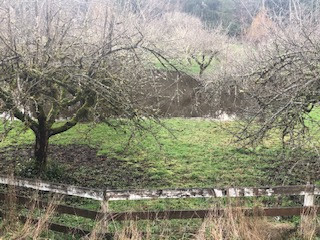 |
| Photo by Lee Lageschulte |
By Diane Lobaugh
What is climate?
Climate is the long-term pattern of weather. It can refer to a particular region or the whole planet.
Climate is studied by taking measurements of global temperatures, ocean temperatures, sizes of polar ice sheets and glaciers, snow cover, ocean pH levels, storm frequency and strength, sea levels, and levels of carbon dioxide in the atmosphere.
The climate is changing regionally and globally. There are high levels of carbon dioxide and other gases in the atmosphere, causing the earth’s temperature to rise.
Climate is studied by taking measurements of global temperatures, ocean temperatures, sizes of polar ice sheets and glaciers, snow cover, ocean pH levels, storm frequency and strength, sea levels, and levels of carbon dioxide in the atmosphere.
The climate is changing regionally and globally. There are high levels of carbon dioxide and other gases in the atmosphere, causing the earth’s temperature to rise.
 |
| Dragonfly photo by Jared Solano |
The warming of the earth and ocean is causing polar ice sheets to melt, also raising the sea level.
Shrinking glaciers threaten the water supply for many lives. There are changes in storm frequency and strength.
Weather patterns in many regions are becoming less predictable, making growing crops difficult due to temperature and rainfall changes.
Climate change is very hard for many of us to think about, the complexity of the science as well as the heartbreak in seeing what is happening to people, our earth, and the life on this earth. It is hard but important to face that the current crisis is human caused, beginning with the Industrial Revolution, and accelerating rapidly with the continued burning of fossil fuels (oil, coal and natural gas) and deforestation.
All life on the planet is being affected, all over the world. This is all happening very quickly, faster than most people predicted. This is a climate emergency.
Climate change is very hard for many of us to think about, the complexity of the science as well as the heartbreak in seeing what is happening to people, our earth, and the life on this earth. It is hard but important to face that the current crisis is human caused, beginning with the Industrial Revolution, and accelerating rapidly with the continued burning of fossil fuels (oil, coal and natural gas) and deforestation.
 |
| Pond in apple orchard. Photo by Phyllis Johnson |
Countries that have done the least to create the climate crisis are suffering the most damage, such as drought, food insecurity, flooding and lack of safety.
Many people have a daily struggle just to survive. There are communities in the more industrialized nations that are suffering this damage as well.
In the Shoreline area burning fossil fuels to drive our cars and trucks, and to heat our homes and buildings, is causing the most emissions.
In the Shoreline area burning fossil fuels to drive our cars and trucks, and to heat our homes and buildings, is causing the most emissions.
 |
| Snail photo by Lee Lageschulte |
We live in a culture of consumerism. My neighborhood has a constant stream of delivery trucks. So many of us are constantly ordering and upgrading, shopping, traveling, looking for great deals… there really is no end to it. And always it feels like I need more.
There is pollution at every level of production, packaging, shipping, delivery and then the waste. Overconsumption at this pace has contributed to the climate crisis world-wide and is unsustainable.
Let’s shift from a culture of consumption to one of connection--to the earth, all life, and every human, next door and across the world.
We have a big project ahead of us. Here we go.
What if we each decided to make major changes in how we consume, including radically decreasing our own use of fossil fuels, for the next 3-5 years? What if this effort, together with many others, helped to slow climate change?
 |
| Photo by Diane Lobaugh |
We have a big project ahead of us. Here we go.
Hope to see you in the neighborhood. Diane Lobaugh
Past Shoreline Area News articles based on the pamphlet from Climate Action Shoreline: Start Over Every Sunday, Fossil Fuel Free Friday, and Supportive Saturday.

Thank you, Diane, for this clear, straightforward explanation of the crisis that all inhabitants of planet earth face. All of us can choose to become informed and evaluate the changes we must make in our personal lives to preserve a healthy future for all.
ReplyDeleteEveryone